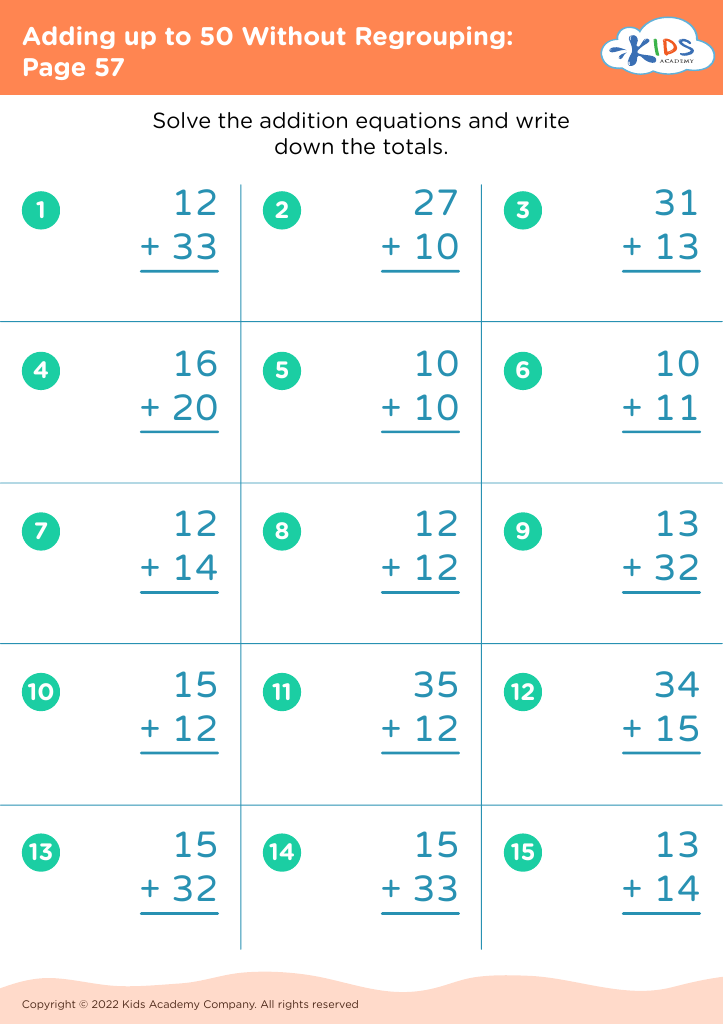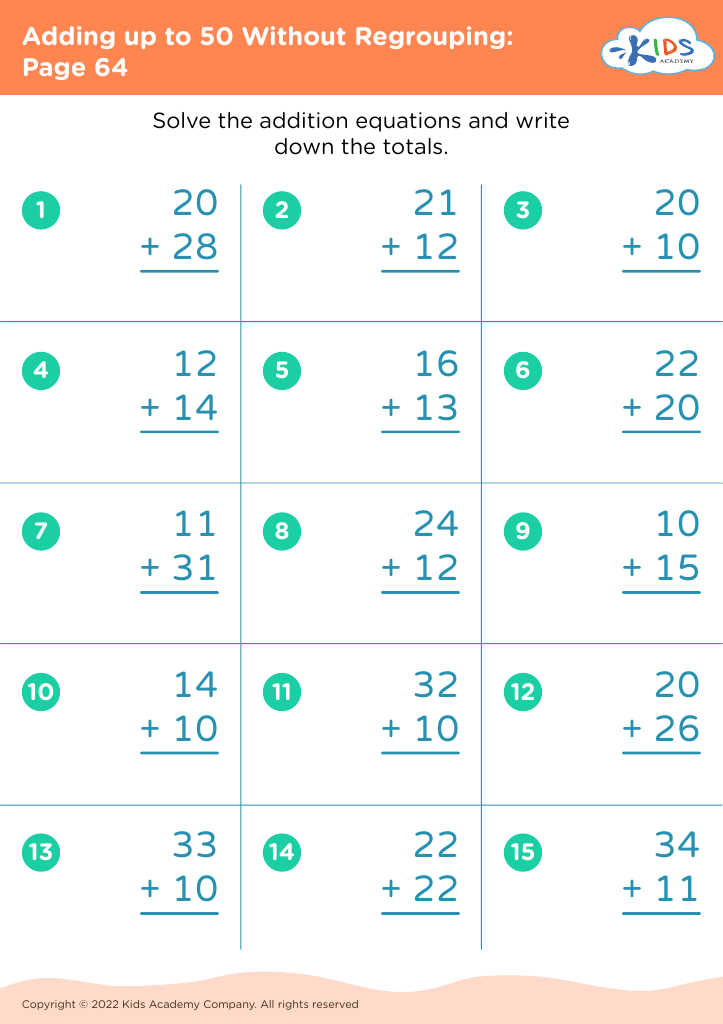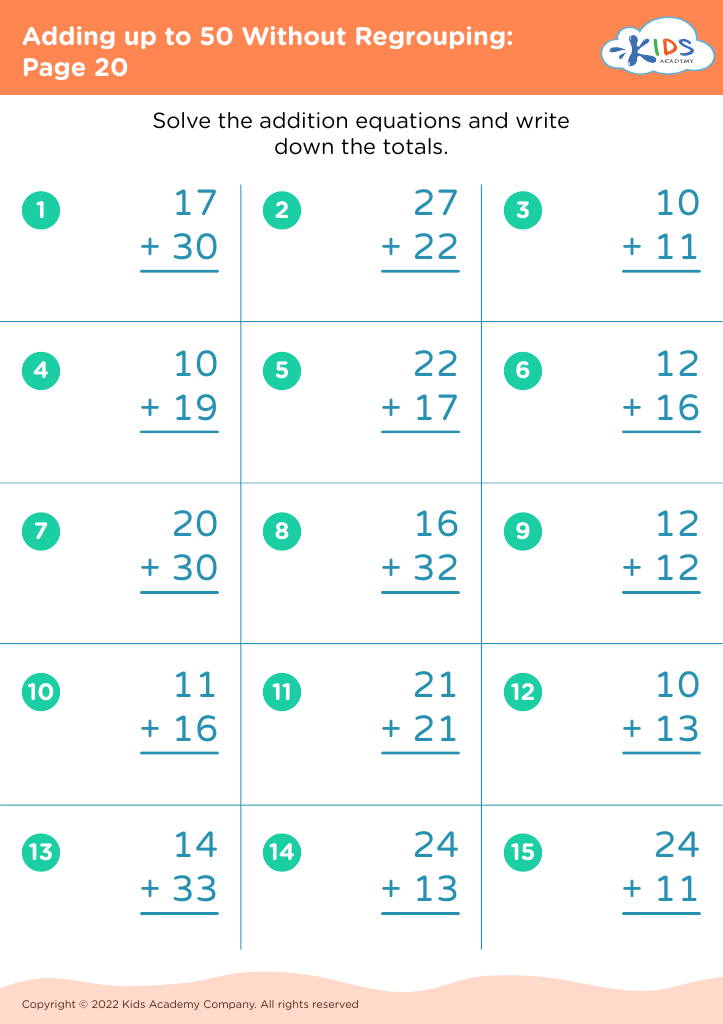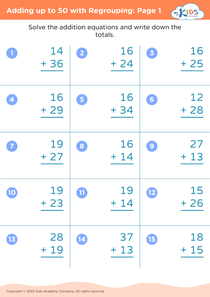Reading comprehension Adding up to 50 Without Regrouping Worksheets for 7-Year-Olds
3 filtered results
-
From - To
Enhance your 7-year-old’s reading comprehension skills with our "Reading Comprehension Adding up to 50 Without Regrouping Worksheets." These engaging worksheets combine math and literacy, allowing children to read fun math stories while practicing addition. Designed to support young learners, each worksheet challenges students to answer comprehension questions based on scenarios that require adding numbers up to 50 without regrouping. This approach not only builds critical reading skills but also reinforces their understanding of addition. By using these worksheets, students will develop confidence in math and reading, laying a strong foundation for future learning. Explore the worksheets today!
Parents and teachers play a crucial role in the development of essential skills like reading comprehension and basic math, including adding up to 50 without regrouping, for 7-year-olds. Mastering reading comprehension helps children understand and analyze texts, laying the groundwork for lifelong learning and critical thinking. It enhances their ability to follow instructions, engage with stories, and grasp concepts in various subjects across their education.
Simultaneously, adding up to 50 without regrouping fosters foundational math skills that encourage arithmetic fluency. This skill allows children to perform calculations with confidence, promoting problem-solving and logical thinking. The interconnectedness of reading and math is evident; for instance, many math word problems require good reading comprehension to identify what is being asked.
By focusing on these areas, parents and teachers equip children with vital cognitive tools that enhance their academic performance and overall confidence. Empowering children to excel in both reading and math ensures they are not only prepared for more complex challenges in the future but also develop a love for learning that can significantly impact their lives. Encouraging proficiency in these subjects is therefore essential for fostering well-rounded and successful learners.

















